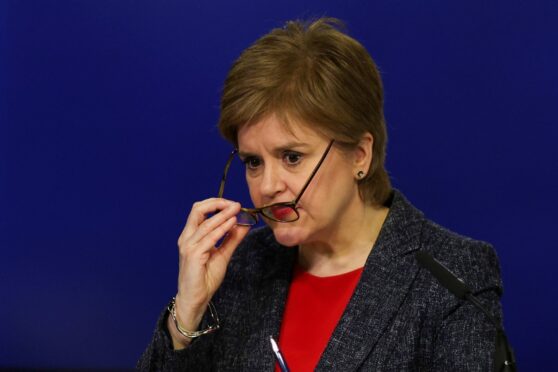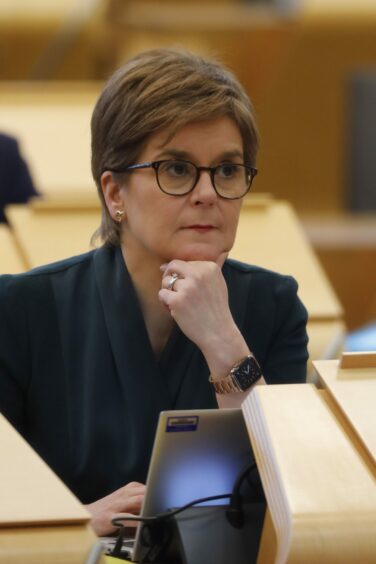
Nicola Sturgeon’s plan to turn the next General Election into a “de facto” independence referendum could now be rolled onto the Holyrood elections in 2026.
The party’s ruling body yesterday decided a special conference will choose whether to fight the next Westminster vote on the single issue of independence or use the next Scottish elections as a poll on the constitution.
The second option would mean the next UK election being fought on the same basis as all recent elections but if the SNP win a majority of seats, and the UK Government continues to refuse to sanction a referendum, then the Holyrood poll in 2026 would be fought on independence.
Opponents accused the SNP of being arrogant, out of touch and continuing to fight a “neverendum” that has stalled Scotland since 2014. They accused the SNP of obsessing about theoretical votes and hypothetical results while Scots endure a cost of living emergency and the NHS buckles in a winter crisis.
The first minister had said the SNP would fight the next General Election on independence after the UK Supreme Court ruled in November that the Scottish Parliament does not have the power to hold another vote on the issue. She said winning more than 50% of the vote would be a mandate to open talks on separation with the UK Government.
However, the party’s national executive committee voted yesterday to offer SNP members the choice of fighting the next Scottish Parliament elections in 2026 as a single-issue vote on the constitution if the party wins most MPs in the General Election but a referendum is refused. Both proposals will be debated at a special conference in Edinburgh in March.
Sturgeon, who led yesterday’s meeting, said a referendum remains the party’s preferred option and only the UK Government’s refusal to sanction one is forcing it to look at using other votes to secure change.
She said: “If Westminster continues to block a referendum – and if Scottish democracy is not to be negated as a result – an alternative democratic means of allowing the people of Scotland to express their will must be found.”
She confirmed her plan for a de facto referendum after judges said Holyrood did not have the power to call a unilateral referendum in November. The proposal led to concern within the party, however, including among MPs, who saw it as a gift to opponents and a needless risk to the party’s electoral chances and even the future of the independence movement. Some suggested Sturgeon’s win-or-bust gambit was intended to ease her exit from the political stage.
Former first minister Alex Salmond, who has accused his successor of lacking the will or tactical nous to secure independence, told his Alba party’s conference in Edinburgh yesterday that a Holyrood election should be called in October and fought as a de facto referendum.
Opposition parties yesterday accused the nationalists of arrogance and skewed priorities. Donald Cameron, the Scottish Conservatives’ constitution spokesperson, said: “This was never more than a stunt for Nicola Sturgeon to placate her supporters’ constitutional obsession.”
Sarah Boyack, Scottish Labour’s spokesperson on the constitution, said: “Nicola Sturgeon’s own party is clearly not happy with her approach and her plans are in danger of being watered down because they are deeply worried that her plans are a political miscalculation that could damages their electoral chances.”
On a visit to Scotland on Friday, Prime Minister Rishi Sunak said the Supreme Court made clear Holyrood does not have the power to legislate for a new referendum without UK agreement. Yesterday, a spokesman said: “People in Scotland want both their governments to be concentrating on the issues that matter to them most.”

Enjoy the convenience of having The Sunday Post delivered as a digital ePaper straight to your smartphone, tablet or computer.
Subscribe for only £5.49 a month and enjoy all the benefits of the printed paper as a digital replica.
Subscribe © PA
© PA